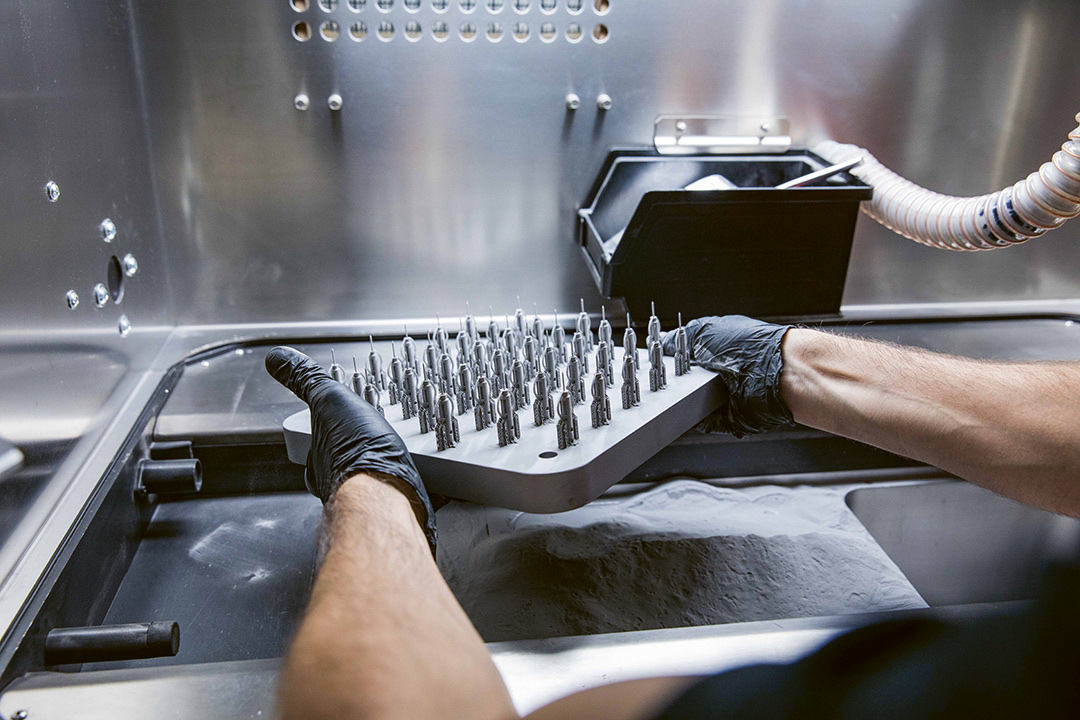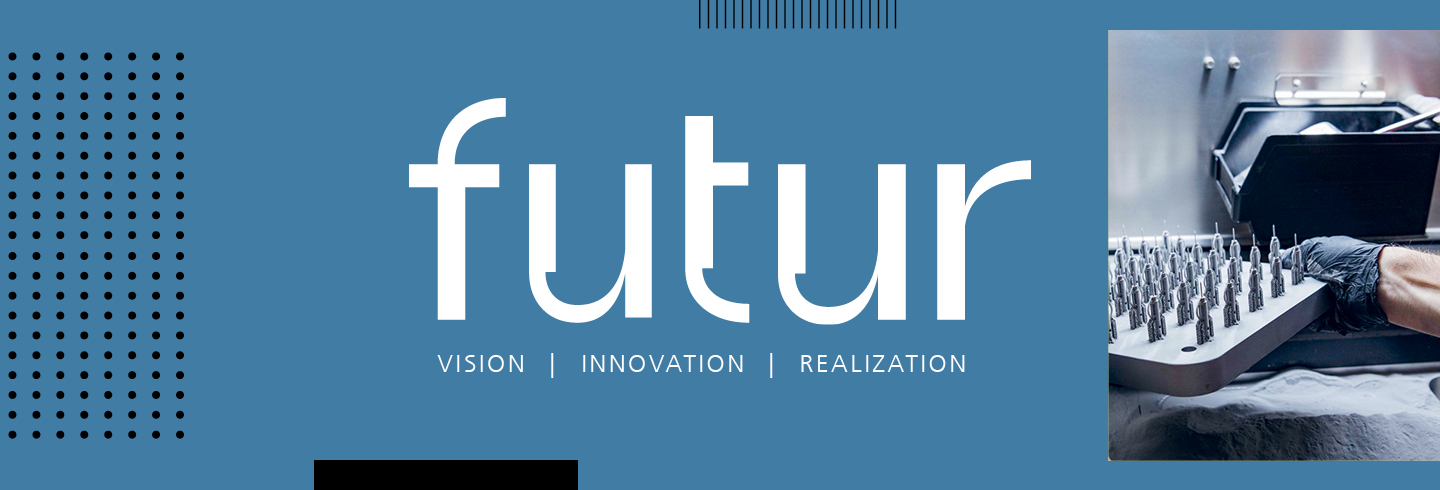Flexibly Robust, Robustly Flexible
For manufacturing companies, remaining viable in the future means reacting with agility to changing market requirements, efficiently addressing new products and manufacturing concepts, and sustainably expanding both technological and human resources. With its large percentage of medium-sized companies and its high vertical range of manufacture, the German industrial landscape is virtually predestined to ensure resilient value creation.
How to utilize this unique potential to survive turbulent times is a question not just medium-sized companies are concerned with. Scientific research is also developing targeted strategies for the production processes of the future. Which of the insights we have gained as production technology experts can we pass on to the industry?
»The best way to predict the future is to invent it.«
Alan Kay
Quo vadis, Mittelstand?
The McKinsey study »How the German Mittelstand is mastering the COVID-19 crisis«, published in May 2020, paints a picture of a confident and resilient Mittelstand in the face of the current disruptions. 77 percent of respondents were optimistic about the future, and 79 percent said they were acting counter-cyclically. However, only 17 percent of the SMEs surveyed have actually taken measures that go beyond operational crisis management. Based on the results, the study suggests a catalog of measures to help German SMEs develop resilience against future crises. The key components: high levels of adaptability and flexibility.
Specifically, McKinsey recommends reassessing the competitive situation, entering into new relationships with customers, actively enforcing counter-cyclical behavior, and re-evaluating procurement and supply chains. The most promising approaches for manufacturing companies are more individualized manufacturing, the development of new business models and digital services, and more robust supply chains with a higher emphasis on local and regional suppliers.
A second representative survey based on the KfW SME Panel from early June 2020 confirms and supplements these findings. Around 2.3 million or 60 percent of all small and medium-sized enterprises expect to feel the effects of the crisis for a long time to come. Manufacturing enterprises are particularly impacted. They see their business situation as being »significantly worse than SMEs in all other sectors of the economy.« But this survey also brings a ray of hope as the respondents are not only focusing on cost reduction, short-time work, or layoffs but also on innovation: 43 percent of all companies have optimized products, processes, or business models or are planning appropriate measures despite the negative economic impact of the pandemic. In comparison, only 19 percent of SMEs established product or process innovations between 2016 and 2018.
In summary, SMEs in Germany are aware that they can best anticipate disruptive changes via resilient value creation and digitally integrated production. But how can they put this into practice?

New technologies for agility …
New ways of creating value for the manufacturing industry lie in digitally integrated and tool-free production processes using additive manufacturing. For example, digital assessment of raw parts can be used to automatically extrapolate suitable finishing steps for additive manufacturing processes, allowing for the efficient, component-specific repair of turbine blades. Process knowledge based on machine learning for the finishing of additively manufactured components can quickly be transferred to new product classes and manufacturing technologies. This eliminates the need for costly and open-ended parameter studies with limited transferability.
… established technologies for stability
The best basis for increased flexibility is a broad technological wealth of experience. Therefore, the importance of established manufacturing technologies for resilient value creation should not be underestimated. The advantage of these process technologies based on expert knowledge is that they can be transferred to new manufacturing tasks without having to perform complex parameter studies. Unfortunately, technological potential often remains unutilized because the day-to-day business of industrial manufacturing does not focus on process analysis and process optimization. Reacting to sudden changes is then only possible by expending a great deal of time and money.
Even companies in highly demanding technological fields can sustainably augment their resilience by consistently implementing the concepts and technologies of digitally integrated production. With approaches such as consolidating expert knowledge in digital process twins and implementing self-compensating closed-loop processes, an adaptable production environment can be created even in a technological field such as ultra-precision machining for the production of smallest batch series.
These examples demonstrate that change is possible without German SMEs having to shift their core competencies. Resilient value creation requires that decisions for or against a manufacturing process no longer be based on subjective expert knowledge. This renders rigid manufacturing processes obsolete. Instead, in order to cater to changing requirements and workloads, fact-based domain knowledge and flexible manufacturing options are required.
 Fraunhofer Institute for Production Systems and Design Technology
Fraunhofer Institute for Production Systems and Design Technology